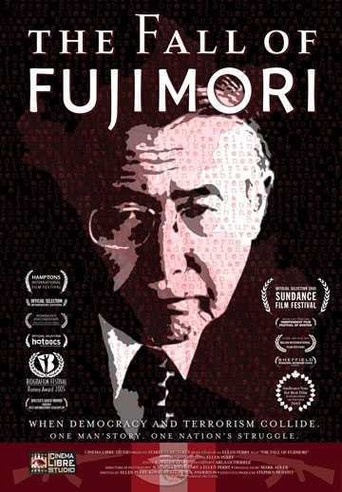
The Fall of Fujimori
May. 05,2006A character-driven, political-thriller documentary that explores the volatile events that defined Alberto Fujimoris decade-long reign of Peru: His meteoric rise from son of poor Japanese immigrants to the presidency; his fateful relationship with the shadowy and Machiavellian Vladimiro Montesinos; his self-coup that dissolved overnight both Congress and the Judiciary.
Similar titles
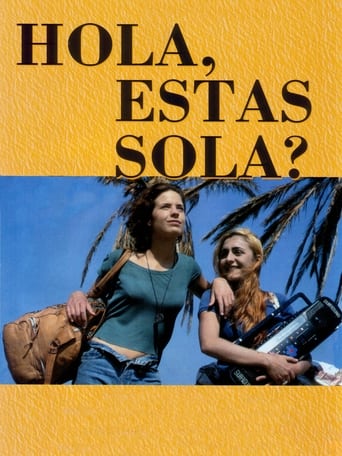
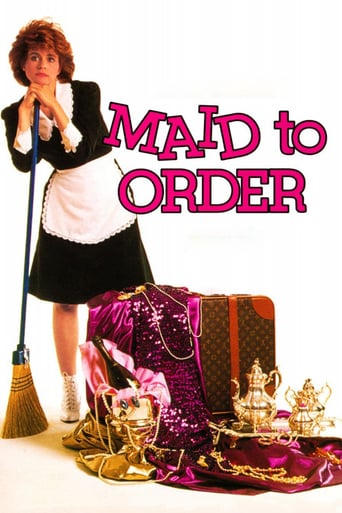
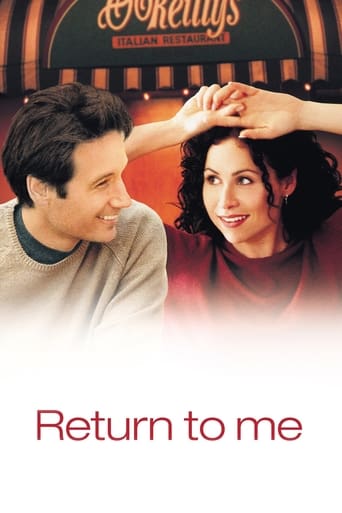
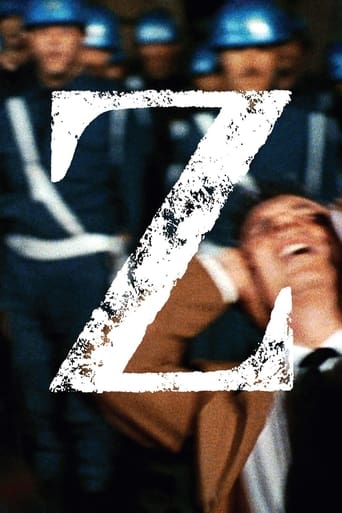

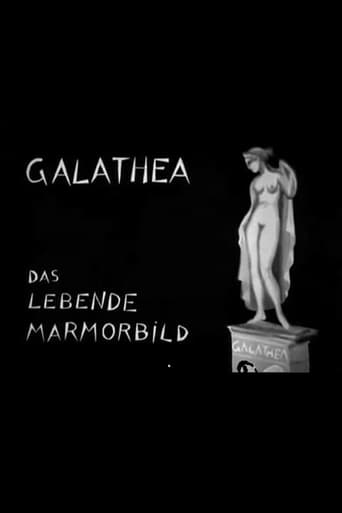
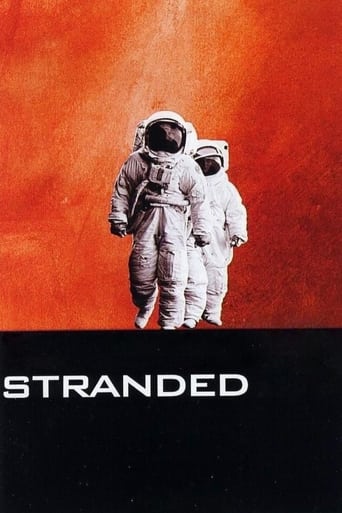

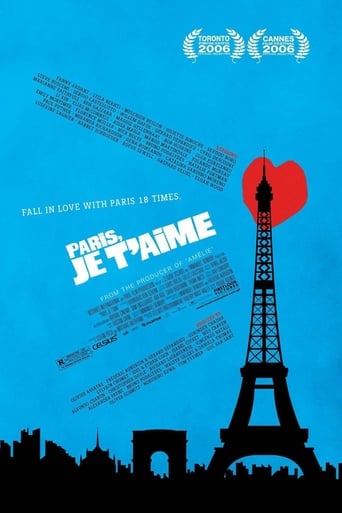

Reviews
A Masterpiece!
The first must-see film of the year.
Blistering performances.
The movie turns out to be a little better than the average. Starting from a romantic formula often seen in the cinema, it ends in the most predictable (and somewhat bland) way.
First, let me say the sheer amount of the footage and the editing are astounding. Often historical documentaries rely mainly on their voice-over narration, and linger a long time over their relatively few visuals. Not here. Here the visuals change quite rapidly - you might even be tempted to reach for your "freeze frame" once in a while. And here the variety and depth of the visuals are almost dizzying. Archival and new footage are inter-cut seamlessly. There are so many snippets of archival footage I started to feel sorry for the person whose job it was to obtain the "rights", then eventually realized that task would have been just plain impossible and there must have been some confluence of events that put most of these snippets in the public domain.I particularly appreciated the portrayal of Fujimori as an ambiguous figure who did some great things. Knowing now of the human rights abuses and the corruption during his administration, it's too easy to pigeonhole him as just an "evil monster". But the film makes us face the fact this all-black portrayal is too cut-and-dried -- this was some kind of gray, and although most would now judge that the high cost wasn't worth the benefit, that's still somewhat debatable. U.S. presidents too have been known to do things that were motivated mostly by politics (for example check out Bill Clinton's "wag the dog" episode) -- how is that different from the kind of "corruption" the film shows Fujimori engaging in? Just how many shades of gray are there really? This is a sort of "narrative newsreel", telling a story from beginning to end over more than a decade, rather than restricting itself to just breaking news. All the key events are at least mentioned. To those expert in the field, I suspect the film will seem comically simplified. For the rest of us though, the story and events will initially be mostly unfamiliar, and we'll get seriously educated. Because the time span is so long and individual events covered so briefly, a person with no background at all will probably need to watch this two or three times (at least once listening to the director's commentary on the DVD) and read at least the Wikipedia entry on Alberto Fujimori.But, what was astounding at the time seems just a few years later to not be very relevant. The whole narrative arc of the film was constructed as a "cautionary tale" to the U.S. about how over-zealous pursuit of "terrorists" can lead to great societal evils. Fujimori is presented as a person whose goal was to suppress some serious terrorism, but who made questionable Faustian bargains to do it and wound up being hounded out of office.That "cautionary tale" is _not_ what I was looking for though (in fact it's possible I would have been disappointed even back in 2005:-). I wanted especially to "understand" Fujimori, and that's not what I got. Here's what I was looking for: To understand the man, start with a brief description of his parents and his childhood. (In fairness, the film does mention birth date and place. But it sheds no light on any possible psychological effects.) Also, describe some of the psychological impacts in his impressionable late teens and early 20's. The film lets stand unchallenged the idea Fujimori was formerly "just a professor", and also both shows us and tells us that he was both a polished and sensitive politician and a skilled administrator and political infighter. (Given the director's hint about how many coup attempts Fujimori survived, he must have been highly skilled just to stay in office.) If he really was "just a professor", where did this skill come from? Then tell us something of the context of Peru. Is it really true, as Fujimori claims, that what went on in Peru in his administration was "more democratic" than in any other Latin American country? (Maybe the line between "democracy" and "populism" is less clear than we like to think.) What's the racial composition of Peru: what proportion of Asians? are the "native" and "Spanish" peoples thoroughly mixed, or still rather separate? is the urban/rural divide in Peru typical of Latin America? Why is Peruvian politics so volatile, with disgraced politicians being freshly elected only a few years later? How have previous Peruvian leaders behaved, and why were so many of them "strong" leaders? A few hints in the film suggest the urban/rural and elite/peasant divide is extremely wide, so much so it's hard to understand how the country can be governed at all - what's the real truth? Also, tell us how Peru related to the international power politics of the time. There are tantalizing hints of connections to the U.S. CIA and to the drug wars in Colombia. The U.S. foisted its "he's an S.O.B, but he's _our_ S.O.B" attitude on the world quite a bit previously. But by Fujimori's time the Berlin Wall had fallen and the superpower struggle seemed to be over. Was Peru a victim of the hangover of older U.S. international attitudes? Finally, try to parse Fujimori's personality while in power. His wife went from being quite happy with their marriage to divorcing him in just a few years. Why? He apparently had some serious detractors even back then. Can we hear from them? There are hints not only Vladimiro Montesinos (Fujimori's "Rasputin") but Fujimori himself siphoned off millions of dollars into offshore accounts. And there are hints Fujimori engaged in some seriously corrupt acts _before_ his war on terrorism. Neither hint is at all consistent with the narrative arc about the over-zealous pursuit of "terrorists". Seemingly something deeper motivated Fujimori - what was it?
The movie was a riveting account of the personal struggles of a man thrust into the daunting position of leading an entire country out of chaos that was Peru in the 1980's. Not only was it educational for me from a historical perspective, the director Ellen Perry did well to add a human dimension to the drama. The viewers were able to see how the dramatic and traumatic events of an entire nation and of ultimate responsibility personally affected Mr. Fujimori and his family.Ms. Perry did well to give the viewer the space to decide their own verdicts and make their own opinions. I could see why Japan reveres the exiled leader as a hero. I could see why he is hated by some. She balanced the factual documentary style with the energy of human drama to make the film well worth watching.For Ms. Perry to have a film of this magnitude under her belt at such a young age, speaks volumes about her abilities and gives everyone much to look forward to.
A friend and I went to see this movie. We have opposite opinions about Fujimori but after watching this movie we agree on the following: the easiest way to have an inaccurate documentary is to make it about a foreign country in which you were not present when the events happened, no matter how talented or how much you invest in the film. If you are truly looking to learn about another countries history, watch something made by natives of that country otherwise you won't be able step away from your bubble. And those who try to force their views and opinions about something to which they don't belong are really abusing their power. To make it even worse, the director chose to not talk about the embarrassing involvement of the CIA with Fujimori's regime. She decides to evade dealing with the only subject for witch her country has much to explain to Peruvians. But this is not surprising because, both, the director and the CIA are violating the sovereignty of Peru by trying to affect the democratic processes at very different levels of course.If the director was really interested in helping Peru she would have financed a native to make the documentary. In any case there are numerous Peruvian made documentaries, films and books about the subject. Such include "Ojos Que No Ven", "Dias de Santiago", "Montesinos-Fujimori: Las Dos Caras de la Misma Moneda", "Montesinos: Poderoso Caballero", etc. The director of the "Fall of Fujimori" should spend her time analyzing the numerous problems in her own country or at least the involvement of her country in the matters of other nations.
Not a balanced point of view. The director shouldn't express her opinion as truth. The movie has some criticism of Fujimori but it always gives him and his family the last words. So few critics of Fujimori were provided that it seems the only reason they were included was to be able to say the movie provides both views. But that is not the case.The movie barely shows one of the massacres that Fujimori is accused of. And it gives him credit for the masterminding the murdering of the MRTA insurgents that took the Japanese embassy. It is well documented that the CIA did the planning. There is even pictures of a well known CIA strategist on the site published by Caretas magazine and other newspapers.The fact that such well known information was not used by the director gives us a few possible conclusions: the director is pro-Fujimori and purposely and falsely chooses to give the credit to him; the director does not want viewers to note that the CIA and Fujimori worked together; or it was just out of ignorance since the director is not Peruvian and was not present in Peru at the time the events occurred.The explanation provided by other commentators, that Fujimori is still fairly popular in Peru, does not excuse the lack of accuracy and balanced explanations.Also, the statistics provided in the movie for the actual support of Fujimori were the highest I have ever heard of. Most statistics by major poll agencies are much lower.Another point to mention is that the intelligence that was key in the capture of the leader of Sendero and discover the secret network was done by a police force led by Ketin Vidal and he had complete autonomy from Fujimori and Montesinos.The first government of Fujimori did experience an improvement in overall economic trends (GDP) but this improvement was financed by the privatization of several national industries with contracts that were not beneficial for the country in the long term. Also, the gap between rich an poor continued to increase during Fujimori's regime. In his second term the economy was suffering and there was nothing else to privatize and by the end of Fujimori's second term the economy was about to collapse.In terms of investments in infrastructure of Fujimori's regime, they fallow the paternalistic pattern. They were created to raise support for Fujimori but were not meant to last long. These structures needed continued maintenance but Fujimori did not provide political power for the civilians in order to demand further investment. In fact, Fujimori's regime was able to destroy most forms of political organizing such as unions and grass-roots groups and the increase in informal unorganized labor was immense.Finally, the director chose to spend most of the movie talking to Fujimori instead of citing the cases of massive corruption in favour of Fujimori (the Media, Business Owners, the Military, etc) that were so wide spread it was impossible that Fujimori was not aware of it.
Top Streaming Movies












